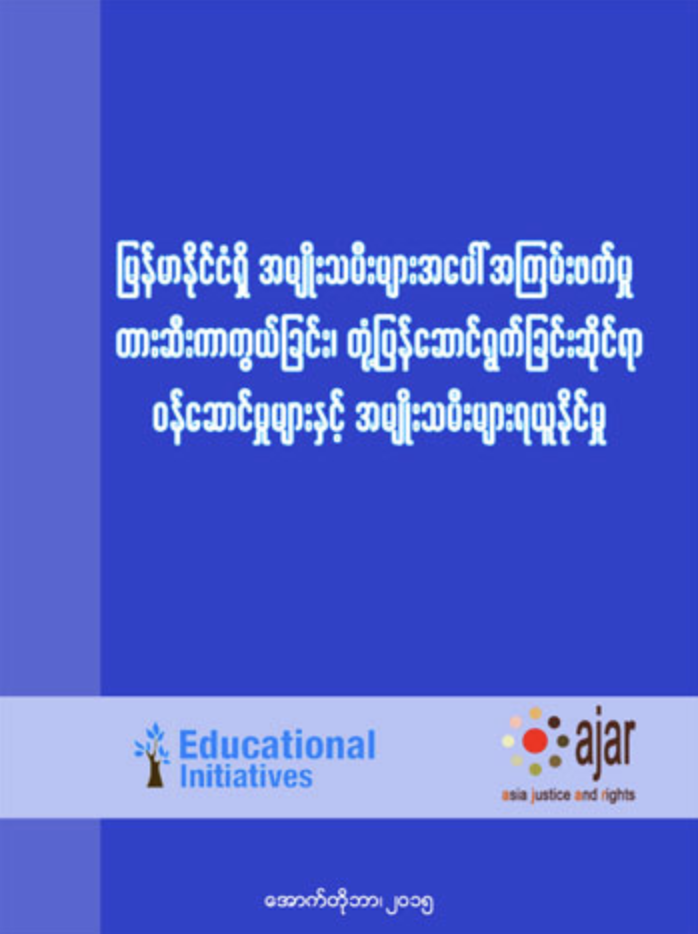Violence against women occurs across all countries, in every society, and at every income level around the world. Myanmar is no different. A number of studies have shown that violence against women is widespread affecting the health, wellbeing, livelihoods and opportunities of women from all ethnicities, communities and income groups across the country. Evidence shows that efforts to address this issue are not enough.
Educational Initiatives (EI)/WIP and AJAR, with the support of Cuso International, conducted a study on VAW response mechanisms. In it, we aim to explore the extent to which VAW-related services can be more effectively used by survivors of VAW, including by survivors of violations perpetrated by state and armed group actors and/or related to conflict. A total of 46 service providers were interviewed by EI/WIP field researchers across 12 administrative zones and areas. Meanwhile, 25 VAW survivors took part in focus group discussions (FGDs) conducted by AJAR’s partners in 3 geographical areas.
The study maps out existing services and then analyzes the barriers, constraints, and needs from the perspectives of both service providers and survivors themselves. Based on this analysis, the report provides concrete recommendations for overcoming these barriers.
